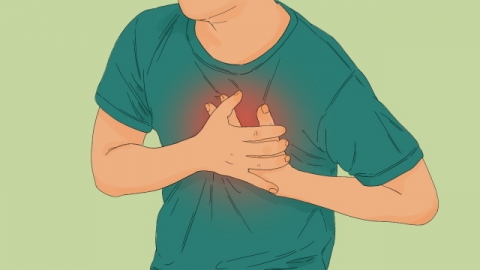What department should I visit for premature heartbeats?
Generally speaking, cardiac premature beats refer to premature contractions. If premature contractions are suspected, one can choose to visit the departments of cardiology, cardiovascular surgery, neurology, psychosomatic medicine, or emergency medicine. Detailed explanations are as follows:

1. Cardiology
If symptoms such as palpitations or shortness of breath occur, one can visit the cardiology department. This department primarily diagnoses heart diseases and determines whether arrhythmia exists to promptly identify premature contractions. Diagnosis can be performed using electrocardiogram (ECG) and ambulatory ECG monitoring.
2. Cardiovascular Surgery
In addition to diagnosing whether premature contractions are caused by heart disease, cardiovascular surgery can also treat heart conditions. If chest pain, chest tightness, palpitations, or similar symptoms occur, one can visit this department for diagnosis based on tests such as ECG and echocardiography.
3. Neurology
If symptoms such as dizziness and headache accompany the condition, one can visit the neurology department. Brain electroencephalography (EEG), computed tomography (CT), and other examinations can be conducted to promptly rule out cerebrovascular and neurological diseases, such as neurosis, multiple sclerosis, and cerebral infarction.
4. Psychosomatic Medicine
Some patients may experience premature contractions related to excessive psychological stress, accompanied by symptoms such as irritability and anxiety. In this case, visiting the psychosomatic medicine department is advisable. Diagnosis and analysis can be carried out using tools like the self-rating anxiety scale and cognitive function assessment to evaluate the patient's psychological state and formulate an appropriate treatment plan.
5. Emergency Medicine
Before the cause is identified, if the patient's condition is severe, with self-harming behaviors, and accompanied by symptoms such as rapid breathing or difficulty breathing, a visit to the emergency department is recommended. Diagnostic tests such as chest CT and X-ray can be performed to select appropriate emergency measures based on the underlying cause.
Note: It is recommended to choose the appropriate department based on individual conditions and related symptoms. Additionally, maintaining a good mindset before and after examinations is important to avoid excessive tension.




